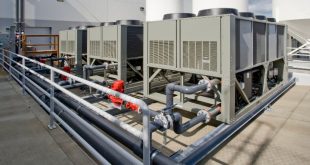Investing in Lahore Smart City, while promising, carries potential risks that every investor should be aware of. As one of Pakistan’s most ambitious real estate projects, Lahore Smart City offers numerous benefits, but like any investment, there are several uncertainties that could impact your returns. In this article, we will dive into the various risks of investing in Lahore Smart City to provide a comprehensive understanding of what you should consider before committing your resources.
Uncertain Regulatory Environment
One of the primary concerns when investing in large-scale real estate developments like Lahore Smart City is the regulatory environment. Changes in government policies, zoning laws, or urban planning regulations could delay or affect the project’s execution. While the developers have received necessary approvals, future changes in regulations could create roadblocks that might affect the completion of the project, impacting investor confidence and property values.
Risk of Legal Disputes
In developing real estate markets, the potential for legal disputes is high. These could stem from land acquisition issues, changes in property laws, or even conflicts between government bodies and developers. Any such dispute can delay construction and lead to financial losses for investors. It is essential for investors to verify that the developers have clear and undisputed ownership of the land and that they are in compliance with all legal requirements.
Market Saturation
As more and more smart city projects are announced across Pakistan, there is a risk of market saturation. Lahore Smart City is entering a competitive market with other notable projects like Capital Smart City, Gwadar Smart City, and several others. This can lead to an oversupply of residential and commercial units, driving down property values and affecting the return on investment (ROI) for investors.
Fluctuating Real Estate Demand
In recent years, the real estate market in Pakistan has experienced fluctuations due to various economic and political factors. Changes in consumer demand, influenced by economic conditions, inflation, and interest rates, can impact the overall success of Lahore Smart City. A decline in property demand could result in unsold units, reduced rental yields, and longer wait times for capital appreciation.
Economic Instability
Pakistan’s economy has faced numerous challenges, including inflation, currency depreciation, and fiscal imbalances. Economic instability poses a risk to long-term real estate investments as it can affect construction costs, financing options, and property demand. Additionally, international investors should be aware of the impact of currency fluctuations, which can further complicate returns when converting Pakistani rupees to foreign currencies.
Inflation and Interest Rates
A high inflation rate erodes the purchasing power of money, and in the context of real estate, it can increase construction costs and maintenance expenses. Similarly, rising interest rates can make financing more expensive for both developers and buyers, reducing the number of potential purchasers and leading to a slowdown in the real estate market.
Construction Delays
A significant risk in any real estate project is the possibility of construction delays. These delays can be caused by various factors such as labor shortages, material shortages, or even adverse weather conditions. Lahore Smart City, despite being a well-planned project, is not immune to these challenges. Delays in construction can extend the timeline for investors to see any returns and may reduce confidence in the project’s completion.
Developer’s Track Record
While Lahore Smart City is being developed by Future Developments Holdings (FDH), which has a good reputation in the market, the success of the project heavily relies on the developer’s ability to deliver on time and maintain the quality standards promised. Any mismanagement or deviation from the promised timelines can lead to significant financial losses for investors, especially those who have purchased property during the pre-construction phase.
Political Uncertainty
Political instability is a persistent issue in Pakistan, and it poses a considerable risk to large-scale developments like Lahore Smart City. Changes in government or policy shifts could impact the regulatory approvals and ongoing construction work. Investors need to consider the broader political climate and how potential changes in leadership could affect real estate projects.
Environmental Risks
Like many other large-scale developments, Lahore Smart City faces potential environmental risks. These risks could include flooding, earthquakes, or other natural disasters that could damage infrastructure and delay project timelines. Moreover, environmental regulations could be introduced in the future, potentially requiring developers to adopt expensive eco-friendly technologies, which may increase costs and affect project feasibility.
Climate Change Impacts
As the frequency of extreme weather events increases due to climate change, the risk to real estate investments rises. Flooding and water scarcity, in particular, pose significant challenges to Lahore Smart City, which is located in an area susceptible to seasonal monsoons. Investors must consider the long-term impacts of climate change when evaluating the viability of their investment.
Maintenance and Infrastructure Issues
Another potential risk is the quality and sustainability of the infrastructure being built in Lahore Smart City. While developers promise state-of-the-art facilities and smart city technologies, there is always a risk that maintenance issues will arise post-construction. Poor maintenance can significantly impact the quality of life for residents and lower property values, diminishing the investment’s overall attractiveness.
Smart City Technology Failures
Lahore Smart City is marketed as a tech-driven development, with promises of smart infrastructure, advanced security, and energy-efficient solutions. However, the implementation of smart city technology comes with its own set of risks. Technical failures, outdated systems, or inadequate maintenance could diminish the project’s appeal, especially to tech-savvy investors who value cutting-edge solutions.
Resale and Liquidity Challenges
While Lahore Smart City is an attractive investment for many, it is important to consider the liquidity of the real estate market. Properties in such large-scale developments may not sell quickly, especially in times of economic downturn or market saturation. This can lead to long holding periods and difficulties in liquidating assets, making it challenging for investors to exit the market at a profit.
Resale Value Uncertainty
In addition to liquidity challenges, there is uncertainty surrounding the resale value of properties in Lahore Smart City. While property values are expected to appreciate over time, several factors, including market saturation and economic conditions, could lead to lower-than-expected resale prices, potentially affecting the overall return on investment.
Conclusion
Investing in Lahore Smart City offers a promising opportunity, but like any investment, it comes with its own set of risks. From regulatory challenges and market saturation to economic instability and construction delays, investors must thoroughly evaluate these risks before committing their funds. A clear understanding of these potential pitfalls will allow investors to make informed decisions and mitigate their exposure to these risks.
For More Information: Smart City Lahore
 Diverse Perspectives: Insights & Stories Exploring Ideas, Sharing Knowledge
Diverse Perspectives: Insights & Stories Exploring Ideas, Sharing Knowledge





